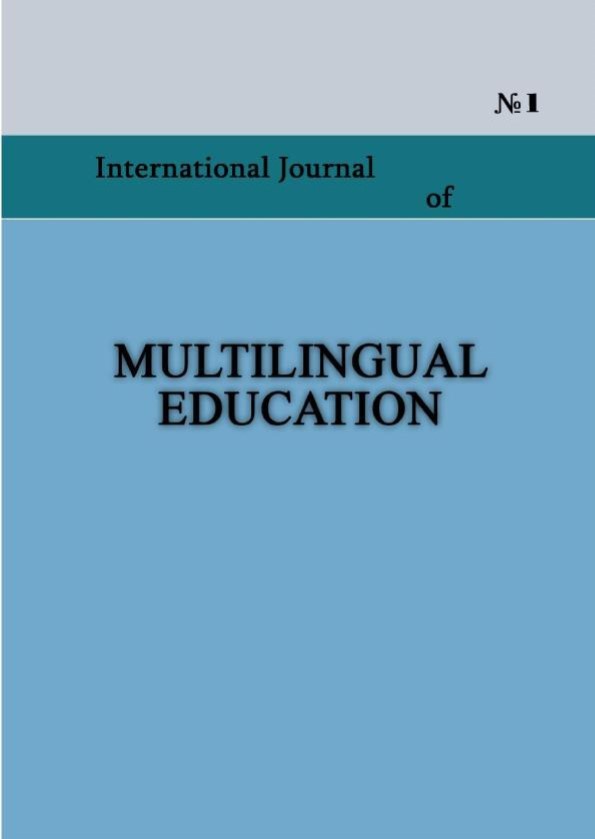ANGLICISMS AND LATINISMS IN MULTILINGUAL CONTEXT
Keywords:
lingua franca, multilingualism, Latinisms, Anglicisms, higher education terminology.Abstract
The purpose of the research is to show the importance of Anglicisms and Latinisms in multilingual context and to ground the principles of their functioning in modern higher education terminology. The research also highlights the reasons for English being a lingua franca of the contemporary world and Europe. The leaflets from the leading universities of such European countries as Belgium, Germany, France, Italy and Spain have been taken as a factual material for the research. All the information in the analysed leaflets is presented in the state language of each of the mentioned countries. To achieve the main purpose of the article, several methods of linguistic analysis have been used. The analysis of the lexis that the web-sites contain, allows us to single out three groups of terms, which have been “ingrained” into the texts under consideration: 1) Proper Latin borrowings (Latinisms); 2) Higher education terms in English (Anglicisms); 3) Non-education terms in English. In the process of the research it has been found out that both Latinisms and Anglicisms are widely used in all the leaflets of the European universities under consideration. The use of Latinisms and Anglicisms “ingrained” in the analysed higher education leaflets in Dutch, German, French, Italian and Spanish has been stated and examined. We have come to the conclusion that this phenomenon is connected with an attempt to unify the terminological apparatus of the modern higher education system, to make it homogeneous, and to avoid the incorrect semantic interpretations.
References
Dewaele J., Wei L. Multilingualism, Empathy, and Multicompetence / J. Dewaele // International Journal of Multilingualism. – 2012. – P. 1–15.
Foucault M. This is Not a Pipe / M. Foucault. – Berkeley and Los Angeles, California, 1983.
Hornberger N., Vaish V. Multilingual Language Policy and School Linguistic Practice: Globalization and English-language Teaching in India, Singapore and South Africa / N. Hornberger, V. Vaish // Compare: A Journal of Comparative and International Education. – 2008. – P. 1-15.
James A. R. English as a European Lingua Franca: Current Realities and Existing Dichotomies / A. R. James // English in Europe: The Acquisition of the Third Language. – Stroud, 2000.
Jesenská P. Eurospeak and ELF – English as a current global Lingua Franca. – Matej Bel University. Banská Bystrica, Slovakia. — 21 p.
Jenkins J. World Englishes: A resource book for students. – London: Routledge, 2003. – 233 p.
Kachru B.B. World Englishes 2000: Resources for research and teaching / B.B. Kachru // L.Smith (Ed) World Englishes 2000. – Honolulu, 1997. – P.209-251.
Keller R. A Theory of Linguistic Signs. / R Keller. – New York: Oxford University Press, 1995.
Mollin S. English as a Lingua Franca: A New Variety in the New Expanding Circle? // Nordic Journal of English Studies. – 2006. – Vol. 5, No 2. – 18 p.
Multilingual Europe: Reflections on Language and Identity / Ed. by J.Warren and H. M. Benbow. – Cambridge, 2008.
Ogden C. K., Richards I. A. The Meaning of Meaning / C. K. Ogden, I. A. Richards. – London, New York, 1923.
Saussure Ferdinand de Nature of the Linguistics Sign / F. de Saussure // Charles Bally & Albert Sechehaye (Ed.), Cours de linguistique générale. – McGraw Hill Education, .
Seidlhofer B. Research Perspectives on Teaching English as a Lingua Franca // 24 Annual Review of Applied Linguistics, 2004. – P. 209-239.
Wilton A., Houwer A. de The Dynamics of English in a Multilingual Europe / A. Wilton, A. de Houwer // English in Europe Today: Sociocultural and Educational Perspectives. – Amsterdam, 2011. – P. 1-13.
Wilton A. Multilingualism and foreign language learning / A. Wilton // Handbook of Foreign Languge Communication and Learning, K. Knapp & B. Seidlhofer (eds). – Berlin: Mouton de Gruyter, 2009. – P. 45-78
Камшилова О.Н. Английский язык как lingua franca: функция языка или языковая форма?/О.Н.Камшилова//Известия РГПУ им.А.И.Герцена.– СПб, 2006. – с. 61-74.
Web references
Bucharest Communiqué // http://www.ehea.info/Uploads/(1) /Bucharest%20 Communique%202012(2).pdf
Communiqué of the Conference of European Ministers Responsible for Higher Education, Leuven and Louvain-la-Neuve, 28-29 April 2009 // http://www.ond.vlaanderen.be/hogeronderwijs/bologna/conference/documents/leuven_louvain-la-neuve_communiqu%C3%A9_april_2009.pdf
Eurostat // http://wikipedia.org/wiki/Eurostat.
Multilingualism in the European Union // http://www.ecose.org/gr8parents_ files/multilingualism_in_eu.doc
The Bologna Declaration of 19 June 1999 // http://www.bologna-bergen2005.no/Docs/00-Main_doc/990719BOLOGNA_DECLARATION.PDF
The Bologna Process - Towards the European Higher Education Area // http://ec.europa.eu/education/higher-education/bologna_en.htm
Tlaxcala’s Manifesto // http://www.tlaxcala.es/manifiesto.asp?section=2&lg=en
Top Universities: Worldwide University Rankings, Guides and Events // http://www.topuniversities.com/
Тремблей К. От мультилингвизма/многоязычия к плюрилингвизму // http://51959387.fr.strato-hosting.eu/plurilinguisme/images/Recherche/multilinguisme plurilinguisme %20russe.pdf
Published
How to Cite
Issue
Section
License
Copyright (c) 2013 Alla Anisimova

This work is licensed under a Creative Commons Attribution-NonCommercial 4.0 International License.
Copyright (c) - Authors who publish with this journal agree to the following terms: Authors retain copyright and grant the journal the right of first publication with the work simultaneously licensed under a Creative Commons Attribution-Noncommercial 4.0 International License, which allows others to share the work with an acknowledgement of the work's authorship and initial publication in this journal. Authors are permitted and encouraged to post their work online (e.g., in institutional repositories or on their personal website) prior to and during the submission process, as it can lead to productive exchanges, as well as earlier and greater citation of published work (see The Effect of Open Access). Authors may enter into separate, additional contractual arrangements for the non-exclusive distribution of the journal's published version of the work (e.g., post it to a repository or publish it in a book), with an acknowledgement of its initial publication in this journal.

